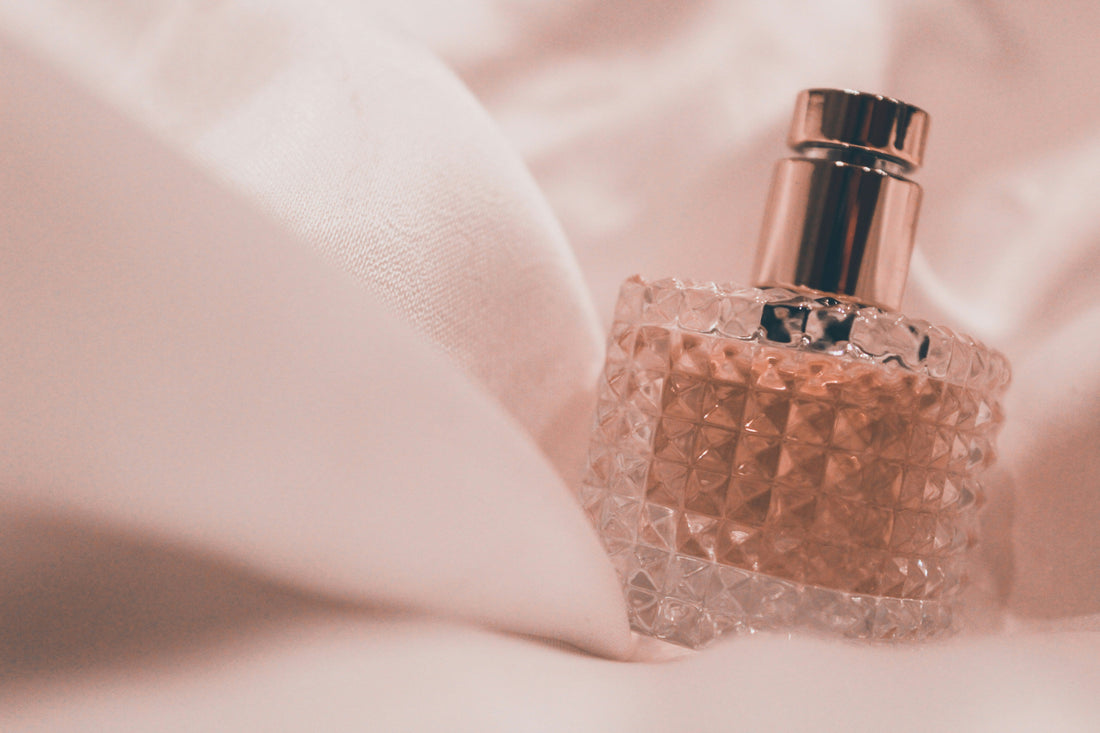As you wander down any mainstream personal care aisle, you’ll likely be hit with a wall of synthetic fragrance. From "Cool Rush" to "Tropical Storm" to "Vanilla Thunder," conventional deodorants often lean on overpowering, artificial scents to mask body odour.
The truth is, your deodorant shouldn’t smell like a strong perfume. And if it does, it might be doing more harm than good—not just to your skin, but to your health, your hormones, and even your sense of smell.
If you're looking for the best deodorant scent, it's time to shift your focus from bold fragrance to natural balance, skin health, and clean ingredients.

The Problem With Strong Fragrance in Deodorant
Synthetic fragrance is one of the most common—and least regulated—ingredients in conventional deodorant. It’s also one of the most problematic.
Fragrance = Chemical Cocktail
“Fragrance” or “parfum” on an ingredient label may sound harmless, but it’s often a catch-all term for scores of undisclosed chemicals. These can include:
- Phthalates (which has been linked to hormone disruption)
- Allergens (can cause rashes, irritation, or headaches)
- Petroleum-derived compounds (such as synthetic musks)
Unlike food products, personal care brands aren't required to disclose fragrance components because they’re considered proprietary.
Overpowering Scents Can Irritate Skin and Senses
If your armpits feel itchy or inflamed after using a scented deodorant, the fragrance could be the culprit. Strong synthetic scents can disrupt the skin’s microbiome—the delicate balance of bacteria that keeps odour in check.
And it’s not just your skin that can react—overly scented deodorants can also trigger migraines, asthma or respiratory irritation, and even sensory overwhelm. That “fresh” scent might feel clean at first, but your body may be telling a very different story.

Why Natural Deodorant Takes a Smarter Approach to Scent
Natural deodorants, like those we make at Lone Kauri, take a more mindful approach to fragrance—or skip it altogether. And for good reason.
Essential Oils or Natural Aromatics
Instead of chemical fragrance, most quality natural deodorants use essential oils, botanical extracts, or mineral compounds for scent. Examples include lavender, tea tree, eucalyptus, cedarwood, lemongrass and sandalwood.
These ingredients don’t just smell good—they often bring antibacterial, calming, or soothing properties to your skin. However, even natural scent blends should be used in moderation. Some people prefer a fragrance-free deodorant option to avoid any irritation at all.
Let Your Skin (and Body) Breathe
When you stop masking your scent with heavy fragrance, your body begins to find its natural balance. You’ll often notice less intense odour (yes, really), less need to reapply throughout the day, and more awareness of what’s actually happening with your skin and sweat. Sweat itself doesn’t smell—it’s the bacteria breaking it down that creates body odour. Synthetic fragrances tend to mask this issue rather than support your skin in doing its job naturally.

What Makes the Best Deodorant Scent?
It’s not the loudest. It’s not the longest-lasting. It’s the cleanest, calmest scent that works with your body, not against it.
Here’s what to look for:
1. Subtle, Balanced Aromatics
You want a scent that’s present but not overpowering—something that fades into the background, not competes with your natural body chemistry. The best smelling deodorants are ones that you notice when applying, but not five hours later in a stuffy room.
2. Scent That Reflects You
The best scent for men or women isn’t necessarily gendered. In fact, Lone Kauri's most loved deodorants—like our Lemongrass and citrus—are popular with all genders.
Natural deodorants often skip the artificial “manly” or “feminine” tropes and instead focus on clean, woodsy notes (great for earthy or outdoorsy types), herbal freshness (ideal for those who like a spa-like feel), or citrus lightness (a great universal pick-me-up).
3. Fragrance-Free Options
More and more people are embracing fragrance-free deodorant—and not just those with sensitive skin. It’s a regular choice for people who are pregnant or breastfeeding, those with allergies or eczema, anyone working in scent-sensitive environments (like hospitals), or individuals who wear perfume and don’t want scent clashes.
But I Still Want to Smell Good—Now What?
We get it. Smelling nice is part of feeling confident. But there’s a difference between smelling like yourself and smelling like a synthetic cloud.
Natural ways to smell fresh without overloading on fragrance:
- Use a natural deodorant with light essential oils
- Freshen up during the day with a spritz of botanical mist
- Let your laundry do the work—wash clothes with unscented or essential-oil-based detergents
- Stay hydrated and eat clean—your sweat reflects your internal health, too
When you switch to a well-formulated natural deodorant, your body begins to regulate odour more effectively, making heavy fragrance unnecessary.

Why “Best Smelling” Might Mean “Least Toxic”
The best smelling deodorant is the one that doesn’t interfere with your skin, health, or sense of well-being. Sometimes that’s unscented. Sometimes it’s a gentle blend of essential oils. But it’s never a cocktail of lab-made ingredients hidden under the word “fragrance.”
Let’s retire the idea that stronger = better. Let’s redefine “fresh” as something natural, clean, and honest.
Trust Your Nose—and Your Skin
If your deodorant smells like it belongs in a perfume aisle, it might be time to rethink what you’re putting on your pits. Natural deodorants don’t try to cover up your body’s natural functions—they work with them, using gentle, effective ingredients that respect your skin and your senses.
So whether you’re on the hunt for the best deodorant scent, curious about fragrance-free deodorant, or just want something that works without the fluff—you’re in the right place.
Lone Kauri exists to give you that clean, reliable confidence—with no nasties and no overbearing scent trails. Explore Lone Kauri’s range of natural deodorants—including best smelling deodorants with light botanicals and unscented options for sensitive skin.
Because smelling good shouldn't come at the cost of your health—or your peace of mind.




